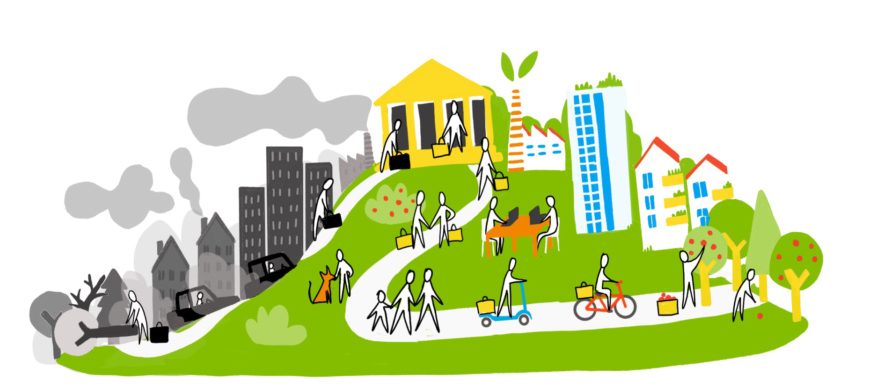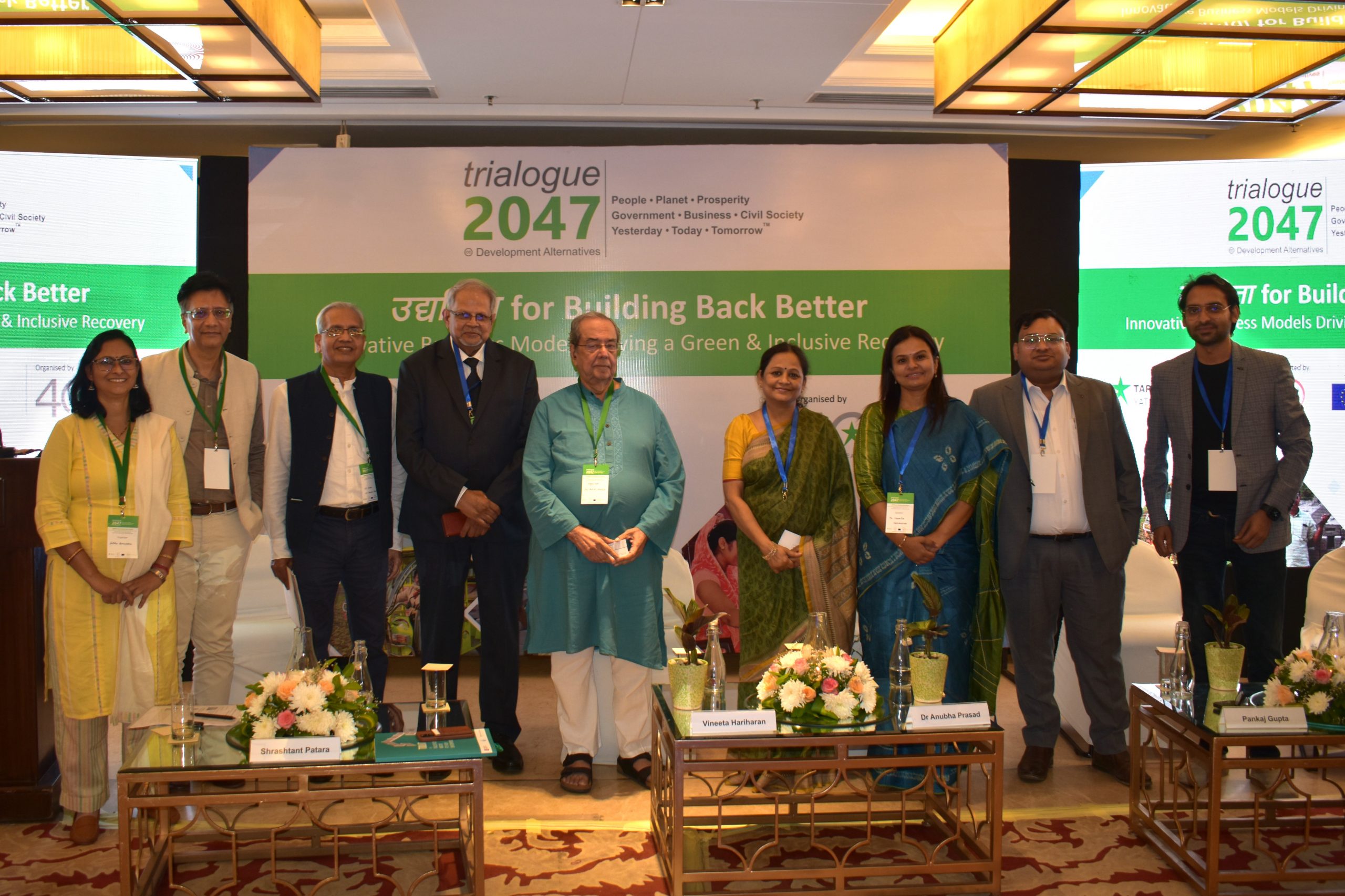 New Delhi: Development Alternatives (DA) hosted the 25th trialogue 2047 on ‘Co-creating Local Green Enterprises’ as the curtain-raiser to TARAgram Yatra 2022. The event was held at the India Habitat Centre, New Delhi recently. As a prelude to the trialogue 2047, a policy roundtable was organised on ‘Innovative Financing for Local Green Enterprises’ in the morning.
New Delhi: Development Alternatives (DA) hosted the 25th trialogue 2047 on ‘Co-creating Local Green Enterprises’ as the curtain-raiser to TARAgram Yatra 2022. The event was held at the India Habitat Centre, New Delhi recently. As a prelude to the trialogue 2047, a policy roundtable was organised on ‘Innovative Financing for Local Green Enterprises’ in the morning.
The DA Group, a leading social enterprise and global think tank with headquarters in New Delhi, organised the one-day event with the goal of developing and implementing sustainable solutions to improve the quality of life and ensure better livelihood for the poor and marginalised. DA accomplishes this by establishing connections amongst participants in the micro-entrepreneurial ecosystem and starting productive discussions about important issues.
The event was held in the background of the COVID-19 pandemic, which has changed the way entrepreneurship is understood and practised. It has motivated businesses to better prepare for the future by thinking beyond the immediate. Local Green Enterprises (LGEs) are a step in that direction. In this regard, the policy roundtable brought varied stakeholder viewpoints together to exchange knowledge on financing strategies for improving LGEs’ access to credit and other financial services. The participants included financiers and entrepreneurs from organisations such as Rang De, Caspian, Fusion Finance, and many more.
This was followed by the trialogue 2047, wherein challenges related to climate change resilience, waste management, circular economy, agriculture and connected services (among others) were addressed. Alongside, the conference saw the launch of a Toolkit for Facilitating Micro Fly Ash Brick Enterprises – a sector-focused but highly customisable end-to-end guide for green entrepreneurs to start and expand their businesses.

The trialogue 2047 was divided into the following two phases –
- Knowledge exchange sessions
- Solution exchange session to design framework for financing LGEs
Further, the conference addressed the following queries:
- What changes in approach are evident in policymaking, financing, and advocacy for green and inclusive entrepreneurship in India, especially over the past 3-5 years?
- What systemic risks and barriers are inhibiting the growth of such entrepreneurs in India?
- What measures are deemed necessary to tackle these risks and barriers, and how can the stakeholders align themselves and work in partnership towards the goal?
Sharing his thoughts on the takeaways from trialogue2047, Dr Ashok Khosla, Chairman, Development Alternatives Group said, “In the whole conversation around India’s post-pandemic revival, it is vital that we do not ignore the incredible diversity of livelihoods in the country. Without losing sight of the bigger picture, it is crucial that we build an ecosystem where growth is inclusive and is built from the grassroots up. Creating local and sustainable economies should be our priority; this will help India achieve a more equitable growth paradigm.”
Sharing his thoughts, Dr Ashok Kumar Ghosh, Chairman, Bihar State Pollution Control Board, who also attended the event, said, “Following the green agenda, on which we have had very fruitful discussions at the Trialogue 2047, will prove to be immensely beneficial for every one of us, from governments and corporate organisations to civil society and individuals. There are many positives that we can take away from the conference.”

